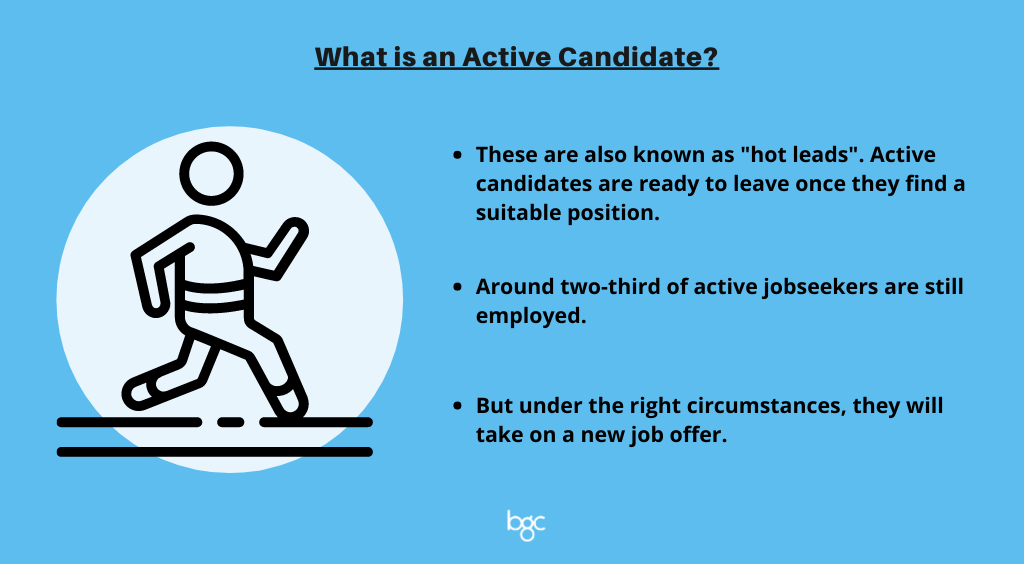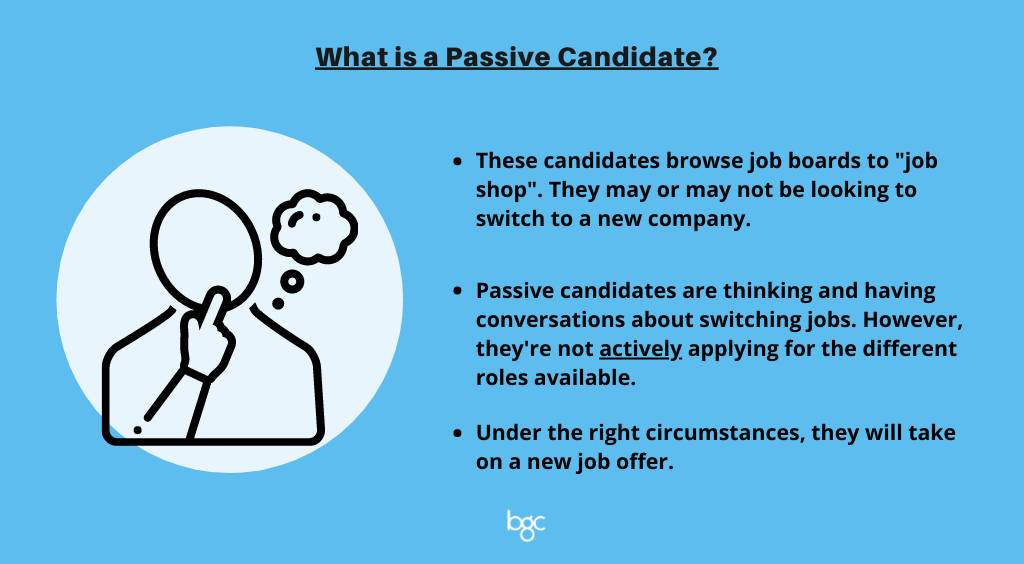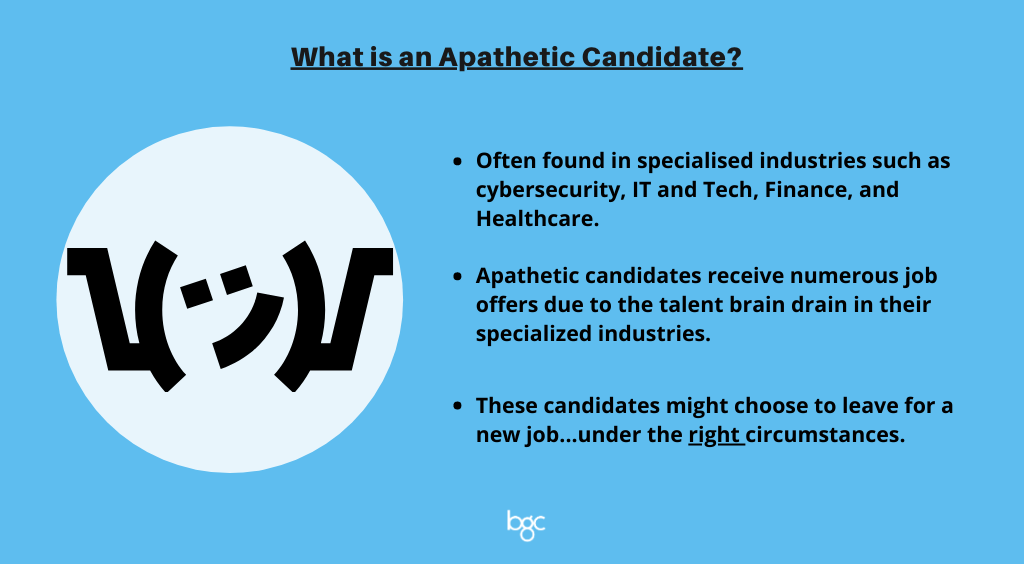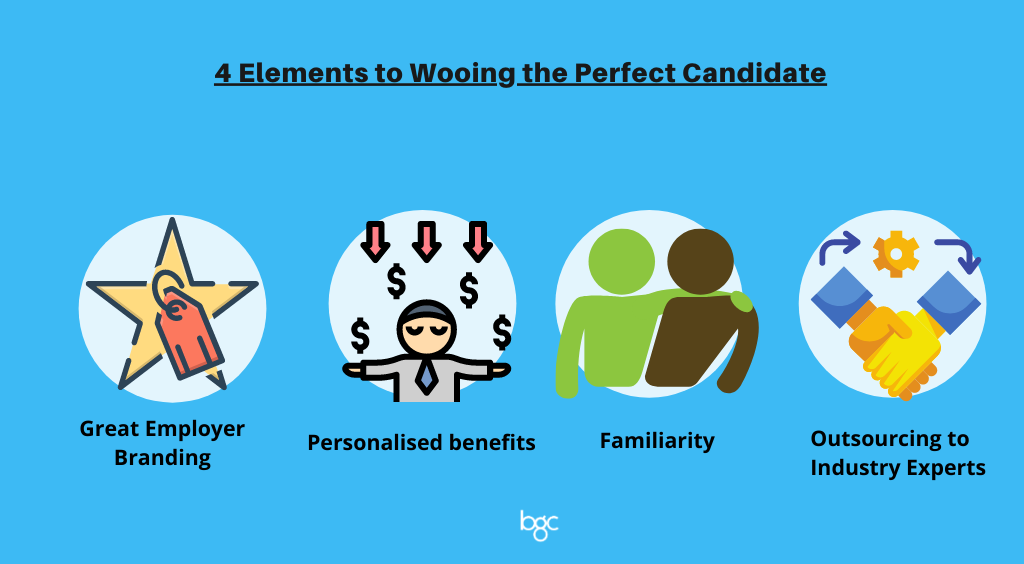To the untrained eye, recruiting is just a matter of pushing out job ads and hiring the first candidate to respond. But there is a science and art to proper recruitment. As a recruitment agency in Singapore, we empathise with hiring managers out there who find it hard to convince your ideal candidate.
No worries though, today, we’ll be discussing the different types of candidates that you’ll come across in every interview. And how to win their hearts!
Identifying the Different Interview Candidates

It is determined that there are four different types of interview candidates. They can be broken down into active candidates, semi-active, passive, and super passive candidates. So the next time your ideal candidate walks into the interview room. You’ll be able to convince them to join your team!
Active Candidates

The active candidate is simply someone who is actively looking for a job. Recruiters might sometimes refer to these candidates as ‘hot leads’. It should be noted that despite actively applying for work, only two-thirds of active candidates are still employed.
Despite this, knowing the different reasons why active candidates check out the job market, might make it easier to ‘poach’ them. Some common reasons why active candidates apply for jobs are:
They’re unhappy: To put it simply, despite being employed, these candidates are unhappy with their job circumstances. These issues can range from being underpaid to not being the right culture fit. In addition, some candidates are frustrated and looking for more opportunities to upskill or move onto the next step of their career ladder.
They’re job shopping: This could be rare but there are some employees out there who are just browsing through the job market. Their reasons for “job shopping” might include the possibility of being outsourced. They might also be on the lookout for a new job or opportunities to ascend the career ladder.
Whatever their reason might be. These candidates are having conversations and thinking about leaving their current position.
Passive Candidates

Unlike active candidates, passive candidates may or may not be applying for job advertisements online. However, these candidates might be asking around for a job in their network.
Some recruiters might describe these candidates as those who browse LinkedIn whilst on their lunch break. Or perhaps apply for jobs that they find interesting without thought, late at night. These candidates just want to be aware of the different jobs that are available out there. In other words, they don’t want to be left out #FOMO.
Apathetic Candidates

Apathetic candidates are not interested in leaving their job...yet. These are the types of candidates that many headhunters try to recruit. Oftentimes, an apathetic candidate can be described as a skilled candidate in an industry with little competition.
Apathetic candidates can often be found in these industries:
IT and Tech industries: For instance, cybersecurity is an industry where the need for talent is larger than the available talent in Singapore. More information about attracting cybersecurity talent in Singapore is available at A Very Normal Company.
Healthcare industry: In a post-COVID-19 world, the healthcare industry is a booming one. Candidates in this industry are very much sought after— nurses for example. Tapping into this industry without the proper connections might be difficult for some hiring managers.
Finance industry: Finding the right talent in the finance industry can be a challenging task. The challenge intensifies when you’re expected to recruit a candidate with both financial literacy and tech skills (i.e. someone with a fintech background).
The Key to Wooing Ideal Candidates

There is a myriad of reasons why candidates reject in-house roles. The cause for this rejection can range from your organisation’s employer branding to the lack of interesting benefits provided.
As a recruitment outsourcing agency that spends the majority of its time trying to procure the perfect candidate. BGC Group understands the different challenges hiring managers and in-house recruiters face when it comes to wooing your ideal candidate.
The steps listed below might help you gain your ideal job candidate:
Review employer branding: When it comes to hiring apathetic candidates, branding is everything! Job seekers are attracted to organisations with a strong employer branding, as it is often related to the company’s reputation.
Once you’ve identified the key weaknesses in your employer branding, work on strengthening them. Some popular ways to strengthen employer branding include increased social media presence, advertising and ideal product branding.Create a personalised benefits package: The simplest way to score your ideal candidate is to cater to their career wants and needs. If you come across the best fit for your organisation in an interview, ask the candidate what they want.
Depending on the candidate, this can vary from the expected salary to certain types of leaves. In addition, some mid-level job seekers might find the potential of receiving additional education (e.g. courses and training) to be very alluring.Stay active: Even with the right employer branding, some companies might still find it challenging to recruit the right candidate. This is often due to the lack of networking— an oversight caused by both the hiring manager and the head of your organization’s respective team.
After reviewing your employer branding, start brainstorming on the different roles you might want to fill in the future. This allows your organisation’s HR team to build a talent pool of potential candidates on networking websites such as LinkedIn. Thus, making the position easier to fill when it is available.Outsourcing your recruitment needs: Get rid of your hiring headache by outsourcing the task to an industry expert. Whilst there are a number of different recruitment firms available in Singapore. We urge organisations to take the time to source for vendors skilled in the industries you’re looking to hire from (e.g. tech and cybersecurity industry).
Convincing your ideal candidate is often the last and biggest hurdle of the hiring process. Dismissing the importance of this stage can lead to a longer hiring time, which can be a costly consequence. Learn more HR tips and tricks on the BGC Group blog!
Have an idea for a HR, recruitment, and employer-related topic that you want BGC Group to discuss? Share your ideas with us in the comments section below!
Read More: 4 Reasons Why Tech and IT Employees in Singapore Leave Their Jobs
